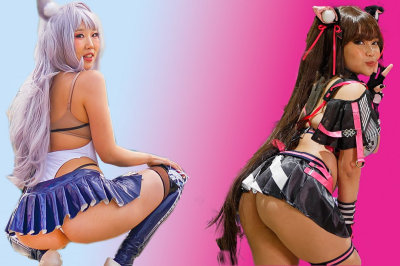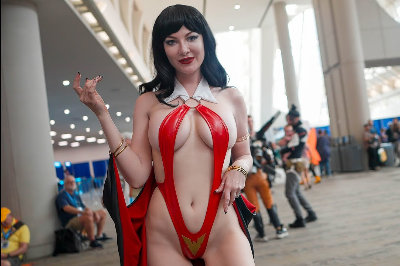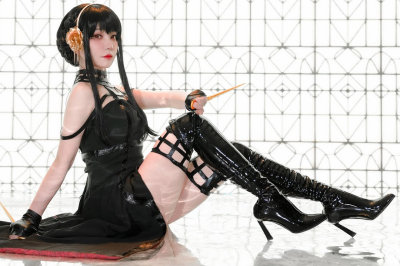THE ROOKIE - Q&A with Rachel Griffiths
What was the initial attraction to your role in THE ROOKIE?
I'm very intuitive about what I do, often it's as much about what I've just done or how I'm feeling at that moment when I read a script and decide if it's good or not. I'd just done the first series of SIX FEET UNDER, which I'd enjoyed enormously, but it explored large emotions on a daily basis, which is far more than a human being is meant to in a six-month period. So I wasn't looking for anything demanding, or was of an intense, psychic nature. This came along and didn't have either of those drawbacks.
There does seem to be a real contrast between Lorri in THE ROOKIE and Brenda, the character you play in SIX FEET UNDER.
To go from playing someone so unsure of who she is to a character that is so clear about who she is and the choices she's made in life was great. Lorri is somebody for whom life is not so much an idea and an abstract, but a day-to-day reality of what you do when you get up: you feed your baby, you make toast for your other child, and get them ready for school. She's runs a life, you know, keeping this little group of people together. I just really liked the idea of playing that.
How conscious were you that this was a true story you were telling?
I was told. But I think the wonderful thing about sports stories in cinema is how unlikely they sometimes seem. Not even that but a big part of our attraction to sport is those stories contained within the sports - there's nothing as exciting as a comeback. A young 21 year old making it and becoming a star is interesting. But let him rise, get a drug problem, break up from his wife, end up on the streets, then get rescued and have a comeback. Then you've got a story!
You have to act in an American accent that is far removed, once again, from your own. How hard it that?
I'm just a real swot with accents. My worst fear is reading a review that says I have the worst accent ever in a British movie or an Irish movie or an American movie. So I just work really hard at it. I've had pretty much the same two British voice coaches on the movies I've done, and the more you work with a voice coach the more they understand what your strengths are. And I like working with coaches who've worked with Australians, because we have our own pitfalls in every accent that we do.
As you have such an obvious talent for accents are people ever surprised to discover that you are really Australian?
Sometimes there's that weird thing when you hear someone in their own vernacular finally, it just totally changes who you think that person is. When I arrived in the States to do SIX FEET UNDER I started shooting the pilot four or five days later, and American crews aren't necessarily well versed in low budget obscure British movies for which I'm most famous! I had so little time to get the accent that I just stayed in it all the time. On the last day I dropped it, and some of the crew couldn't handle it. Someone asked me what I was going to do next, and I said 'I'm just going to go back to Australia'. He dropped his coffee cup. He went: 'you're kidding me, aren't you?' It totally freaked him out.
Is it very different working on a movie in America, as opposed to Britain or back in Australia?
It's a bit like different armies. There are slight changes of uniform, but the fact is the army pretty much runs the same way. Every movie is a highly organised machine where people have very specialist tasks and it's very hierarchical. Everybody's got a job and everybody knows what it is. That doesn't change from place to place. For me the biggest difference on budgets isn't 'oh wow aren't the trailers big', it's more about time. That moment at when you have hardly any light left and you know you haven't nailed it but the director says it was good. He knows that you know that it wasn't, but we just have to move on. That can be kind of heartbreaking for both of you. The difference on a big budget movie is that if it hasn't been nailed there's a good chance we can go back and do it again.
Did you and Dennis Quaid have to work particularly hard before starting the film in order to recreate the evident closeness between your two characters?
I actually moved in with Dennis for six months before the film. [Laughs]. No, not really. I think one of my strengths is in exploring human relationships. I'm much happier on screen with a person - my sister or best friend or husband - rather than being alone in a tomb looking for the secret tunnel. You could pay me a lot of money to do it, but I'd be rubbish at it. I'm just better at deconstructing that people thing. I think that's in THE ROOKIE. The marriage isn't a huge part of the movie but I tried to make it as real as possible and I tried to be as open as possible, and Dennis was too. It's more about those moments on screen together than having parties at his house.
Question & Answer Text Copyright of Buena Vista International



